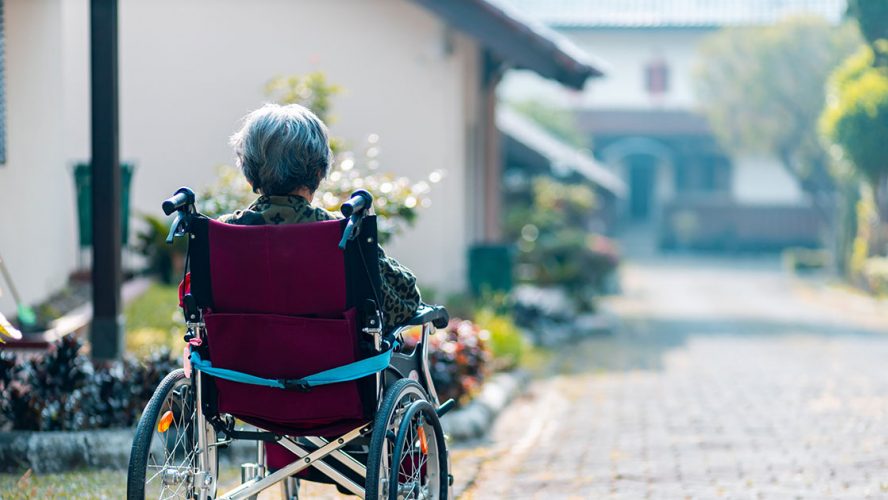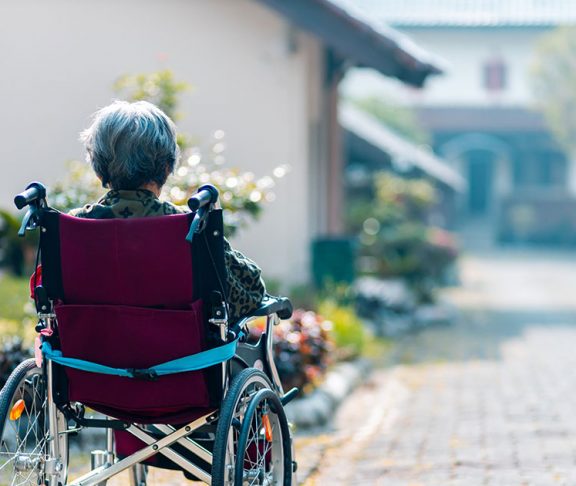
Sherri Snelling
Founder and CEO, Caregiving Club
When the coronavirus pandemic hit our shores, loneliness went mainstream. The devastating requirement to social distance from family, friends, and coworkers, and the resulting waves of isolation and anxiety now have researchers concerned about the downstream collateral damage of the virus on brain health and emotional wellness.
For years, scientists have been focused on loneliness as a risk factor for declining health, a contributing factor for chronic disease and even a pathway to earlier death. One study showed persisting loneliness has the same negative health result as smoking 15 cigarettes a day, while another study showed loneliness increased risk for later-age Alzheimer’s disease by up to 40 percent.
This is a growing concern for our older population, many of whom have less access or resources for social engagement and spend more time alone than any other generation. In fact, Pew Research found adults over age 60 spend almost twice the amount of time alone as Millennials and Gen Z.
But it is not just older adults who may be at risk. The other vulnerable population for loneliness is family caregivers, a group totaling 53 million according to the National Alliance for Caregiving and AARP. In one study, the Carer Well-Being Index 2020-2021
The crushing result was 68 percent of caregivers experiencing negative impacts on their mental and emotional health, with 39 percent reporting that they felt isolated and alone during the pandemic.
Loneliness and brain health
A Lancet Commission 2020 Report on the prevention, intervention, and cure for dementia listed 12 modifiable lifestyle behaviors, among them social isolation and loneliness, that could prevent or delay up to 40 percent of dementias, including Alzheimer’s disease.
Researchers have investigated whether isolation causes loneliness or loneliness causes isolation. The difference between the two is isolation means to be physically separated from others (think solitary confinement, someone homebound and living alone, or the movie “Cast Away”), whereas loneliness is the feeling of being alone. You can be lonely at work, in a relationship, or at a crowded event. Therefore, loneliness is about the quality of our relationships.
Loneliness is often associated with having no control over one’s situation, but also feeling there is no one that can help. By developing resilience and locus of control, which is the perception of how much or little control one has, both seniors and family caregivers can promote better brain health.
In fact, one recent study focused on a unique new concept, Personal Determinants of Health (PDOH), to show how building resiliency can help buffer late-life health challenges in seniors. And an innovative program out of Harvard University, the Unlonely Project, helps create community using the healing solutions in the creative arts to combat loneliness.
Loneliness and Alzheimer’s
Unfortunately, Alzheimer’s disease often carries social stigma that creates distance and resistance. Both those with the disease and their families avoid talking about it with others and even with each other. This avoidance creates isolation and loneliness that ultimately has hidden effects on health.
One area that helped overcome loneliness and distance from loved ones during the pandemic was technology. The accelerated use of video chat, voice assistance technology, and even remote monitoring helped family caregivers bridge the loneliness gap with their older loved ones.
But it also took more time for caregivers. In the Carer Well-Being report, 53 percent of caregivers reported spending more hours helping coach or teach older loved ones how to use the available technology. An alternative was to tap into programs offering volunteers or paid help to provide telephonic companionship and conversation for seniors, another area which saw huge growth last year.
Understanding brain health
Another solution is a new online tool, MyBrainGuide, launched this year to help all generations start learning more about health from the neck up.
“BrainGuide is designed to be a conversation starter, especially between families, but also patients and physicians,” said George Vrandenburg, chairman and co-founder of UsAgainstAlzheimer’s, which recently launched the bi-lingual English+Spanish site. “We know once someone is diagnosed with Alzheimer’s, they most likely have been living with the disease for 20 years. BrainGuide creates a culture of communication families need to personalize their care while maintaining privacy, and also advocates for brain health for all generations.”
Meet with a Retirement Planners of America Advisor, with no obligation or cost, today!
The site uses the latest technology to provide guided, science-based, personalized information, but also includes links to other resources, such as finding local or virtual support group help for family caregivers. Not only do these support groups provide solace, they also create a sense of community and support that lonely caregivers or those with dementia desperately need.
It is one of the reasons Dr. Rudy Tanzi, vice chair of neurology and director of the Genetics and Aging Research Unit at Massachusetts General Hospital, and author of the book “Super Brain,” supports BrainGuide’s approach. Dr. Tanzi notes that loneliness increases the risk for Alzheimer’s two-fold, and making this connection clear is just part of the brain health education needed in public health.
“Up until now, our focus has been reactive when it comes to Alzheimer’s disease and we need to start thinking about being proactive, even in our 20s and 30s,” Dr. Tanzi said. “When it comes to cancers, heart disease, diabetes, we don’t wait until someone has these diseases — we are educating the public about how to prevent these health issues decades before they become a serious issue. If we can treat Alzheimer’s earlier, or better yet, stop it from happening, that is the goal.”



